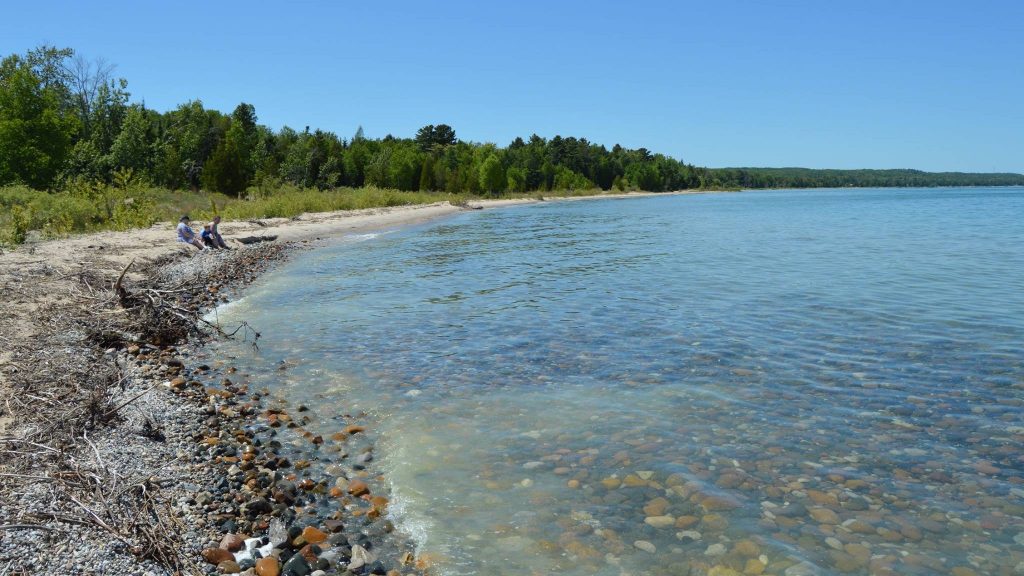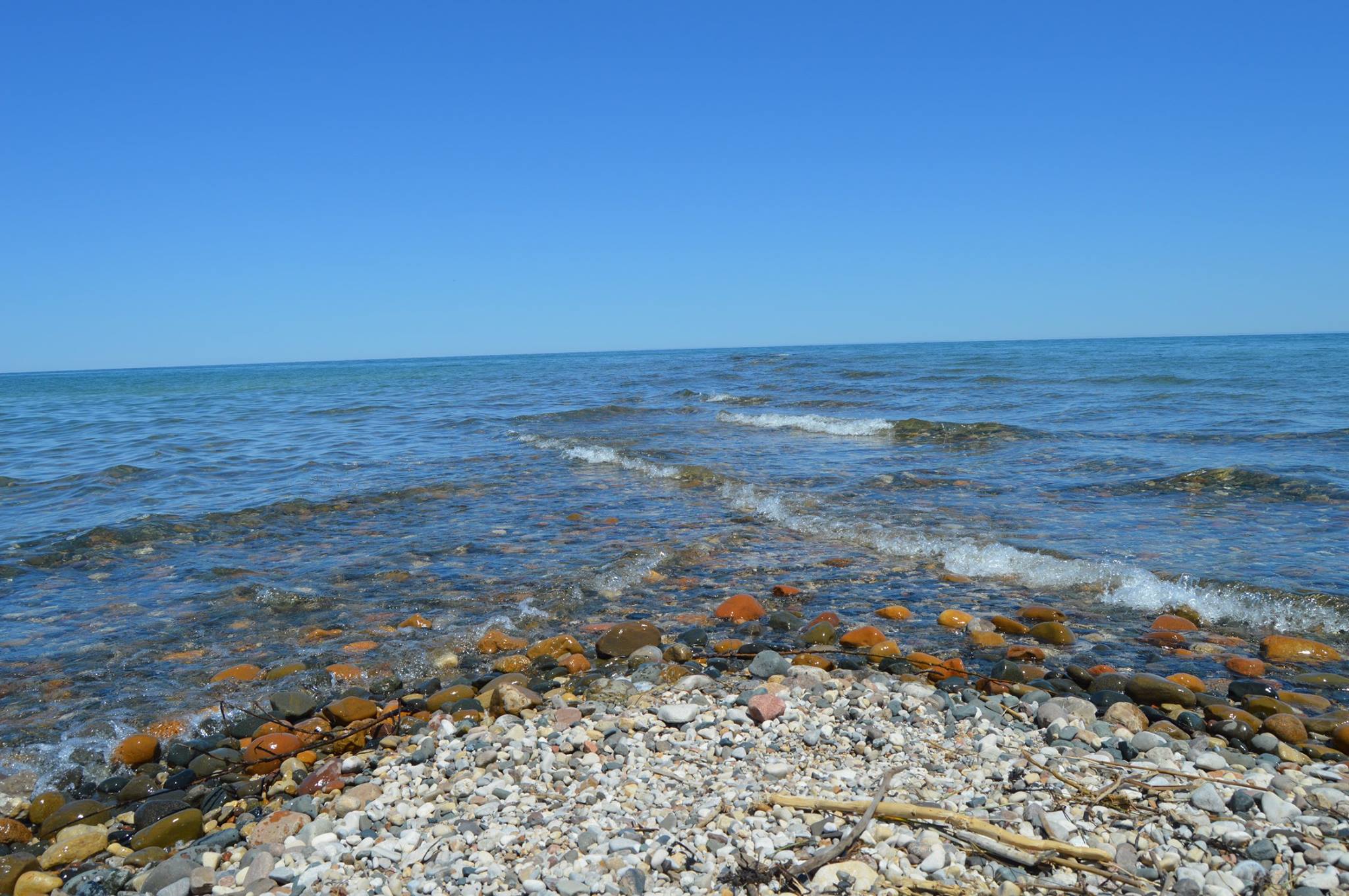Shoreline Erosion Isn’t Just Houses Falling Into Great Lakes. It Affects You Too.
MichMash hosts Cheyna Roth and Jake Neher speak with MLive environmental reporter Paula Gardner about the statewide impact of rising water levels in the Great Lakes.

The Lake Huron shoreline.
Water levels are rising along Michigan’s shorelines.
It’s a fact that has dominated the headlines recently – including stories of people’s houses falling into the Great Lakes. But for those living in landlocked areas of the state, you might not realize that those coastal problems affect you too.
Lake levels went up last year and are predicted to keep on rising, says MLive environmental reporter Paula Gardner.
“So we’re in winter, they’re supposed to be frozen over, that’s supposed to be controlling some of the evaporation,” she said. “That’s not happening.”
This is a problem that doesn’t just impact people on the shoreline, it impacts everyone, Gardner said.
“When I see a house fall into the lake, I need to take that as a symptom of what is happening along the entire coastline of Michigan,” she said.
“When we see a house falling, we could start wondering what else will be flooding?”
One major way this impacts residents across the state is through tax dollars and a shifting of state priorities.
Rising Tides, Rising Costs
A recent study of the issue found that rising water comes with a big price tag. More than 40 roads are affected by high water — with an initial estimate of $5 million in immediate repairs and $100 million to make permanent fixes.
The rains also hurt the state’s $104 billion agriculture industry. In 2019, over 920,000 acres went unplanted, and that number could keep going up this year, which hurts the state’s economy.

Then there’s the infrastructure that’s located along the state’s shoreline, including infrastructure that affects the state’s drinking water.
“When you think about wastewater treatment plants, and when you think about drinking water intakes, those are all located along the shoreline, or some body of water, but many are along the shoreline,” said Gardner.
She pointed to the Great Lakes Water Authority, which has millions of customers servicing most of Metro Detroit.
“So as the water levels come up, and those systems are challenged, they need to be finding solutions for prevention and also, you know, to deal with any any potential breakages or impacts that way.”
